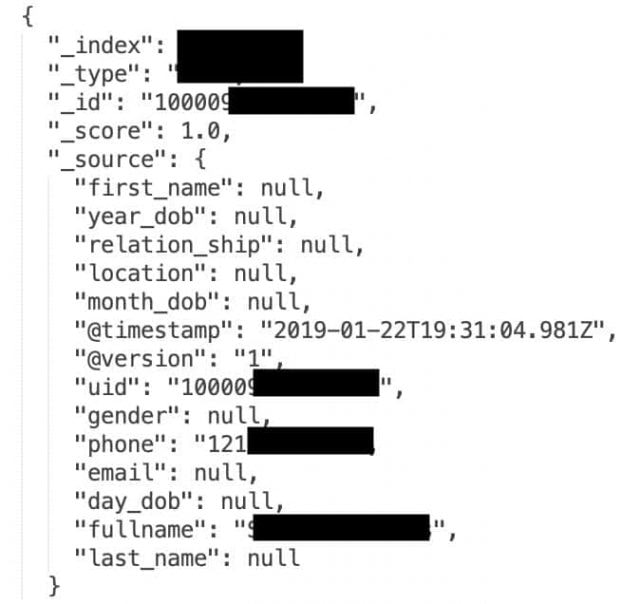|
On New Year’s Day 2020, Twitter account @HindsightFiles began posting documents from data firm Cambridge Analytica (CA) which expose the extensive infrastructure used to manipulate voters on a global scale.
More than 100,000 documents are said to be released in the coming months, revealing Cambridge Analytica’s activity in a shocking 68 countries, including elections in Malaysia, Kenya, and Brazil. The Guardian reported that the documents come from Brittany Kaiser, a former employee of Cambridge Analytica who turned whistleblower and star of the documentary The Great Hack. Kaiser told the Guardian: “I’m very fearful about what is going to happen in the U.S. election later this year, and I think one of the few ways of protecting ourselves is to get as much information out there as possible.”
The latest CA whistleblower has said the dumps will contain previously unreleased emails, project plans, case studies, and negotiations. The HindsightFiles twitter account has posted data on the relationship between Cambridge Analytica and John Bolton, former National Security Adviser to the Trump administration. In 2013, the John Bolton Super PAC paid Cambridge Analytica $650,000 for voter data analysis and digital video ad targeting.
The documents provide more details on that relationship, including using psychographics to play on voters hopes and fears. Psychographics is a methodology which focuses on consumers psychological attributes. Research firms attempt to develop a psychographic profile on various segments of the population by studying personality, opinions, interests, attitudes, values, and behaviors.
0 Comments
We live in a cybernetic society, which is about continuous surveillance, data collection and analysis. The Chinese government has begun to implement the tracking, monitoring and labeling of its 1.4 billion citizens into categories of trustworthiness — also known as social credit. From their own State Council document, this is being done in order to: …allow the trustworthy to roam everywhere under heaven while making it hard for the discredited to take a single step. As Melissa Dykes highlights, the Chinese system is but a precursor for what can be expected on an ever-widening scale as full-blown Technocracy ensnares the globe. Aaron & Melissa Dykes are the founders of TruthstreamMedia.com, Subscribe to them on BitChute, like on Facebook, follow on Twitter, support on Patreon.
Watch their mini-documentary Obsolete here and their full-length documentary THE MINDS OF MEN here. The social network has set aside $3 billion to cover future fines related to its privacy practices. When will Facebook users say "enough is enough!"? #deletefacebook #privacy If you’re a Facebook user wondering if your personal information has been leaked, the answer by this point is almost certainly “yes.” The latest privacy snafu in a long series of them involves about 267 million users. Comparitech and security researcher Bob Diachenko spotted a repository of Facebook user data exposed online for multiple weeks. It has since vanished but not before links to the data appeared on hacker forums. Yes, this is the company that wants to create its own operating system so it can stop using the open source Android OS. The data was available in Elasticsearch, a distributed full-text search engine. The researchers report that the Facebook database first appeared in Elasticsearch on or around December 4th. On December 12th, the data appeared as a download on a hacker forum. Two days later, Diachenko discovered the database and sent an abuse report to the ISP associated with the AP address. On December 19th, the database vanished from Elasticsearch. We can safely assume an unknown number of online criminal types managed to grab the database before it went offline. The 267,140,436 records didn’t include passwords or other highly sensitive information, but it did have Facebook IDs, phone numbers, full name, and a timestamp. From that, someone could find your Facebook profile to gather more intelligence and conduct an effective phishing attack. Comparitech notes that the database would be idea for SMS-based scams. We don’t currently know how the data ended up online. It’s possible a group gained access to Facebook’s system via a security flaw, but it may also have come from Facebook’s developer API. The company restricted access to that API in 2018 after the scale of the Cambridge Analytica scandal came to light. Previously, Facebook’s lax policies made it easy for developers to scrape data from the social network. While sharing that data was technically against Facebook’s rules, it had no way to stop it.
It’s troubling that this lead of millions of user records is actually a relatively minor scandal for Facebook. The company says it is looking into the incident but says it believes the data was taken before it changed its API rules last year. It’s not too worried about the outcome of the investigation, though. Source |
News Watch
Mind-opening news articles, editorials, videos & apparel that inspire our readers and help liberate them from the status quo. Stay informed.
Write For UsSpace WatchTop NewsNews Watch Categories
All
|
|
|
HAVE A TIP OR STORY TO TELL? JOIN TODAY & SHARE YOUR STORY!
If you have a breaking news tip or idea, please email: [email protected] Apparently Apparel® is a registered trade name and part of the ZOAT International® brands network. © 2007-2023. All Rights Reserved. Privacy Policy. All art & news content posted on this site is commentary or opinion and is protected under Free Speech. ApparentlyApparel.com is not responsible for content written by contributing artists, authors or news feeds. The information on this site is provided for educational and entertainment purposes only. It is not intended as a substitute for professional advice of any kind. ApparentlyApparel.com assumes no responsibility for the use or misuse of this material.
|
|










